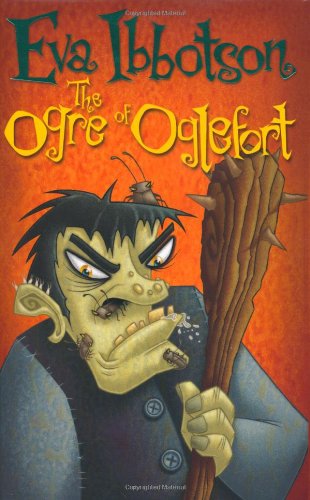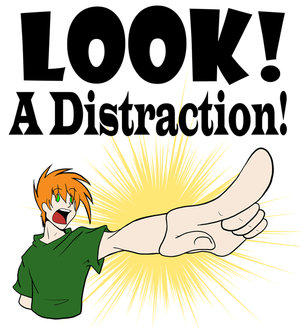If you recall from my previous post, I mentioned that there was a list of stuff that: I've started and then not had the time to finish properly. One of the things on this list was an interview with the author Andrew Leon, who has been extremely patient as the ball has gone bouncing down a very long corridor. So finally here is the long awaited interview that was originally meant to be part of the third writer's platform-building campaign (long since finished). Anyway, big apologies to Andrew and with that let's get on with getting to know him.
Well, maybe not straight away, before we talk all about you, I just have to say that I am a
big fan of Neil Gaiman. I loved his Books of Magic (not the Vertigo imprint
that came out later - even though I did buy them), but I read a friend's copy
and I haven't read it since. Can you just tell me one of your favourite scenes,
please? So I can have that geeky 'Oh yes!' moment. Thanks.
Oh, man! It has been so long since I read that, and my
copies are in storage. I love that series, though. It's probably my favorite
comic series done by Gaiman. Thinking about it, there is this scene where Tim
is walking off with the Phantom Stranger (I think) that is just etched in my
mind. Whether the etching is accurate or not, I don't know, but it's there. I
also loved Gaiman's portrayal of Constantine.
Your book HOUSE ON THE CORNER is available on Kindle and POD.
Why should we add it to our to be read lists?
And, now, you're asking me to be objective about my book?
How cruel! Well, first, I think anyone who has kids should read my book and
read it to their kids. It's great for that. I know, because I've spent more
than a little time reading it in my kids' classes at their school, and the kids
love it. But for adults, I really think it's capable of taking you back to
being a kid and what it was like to think about all the hidden things that
could be hiding around the corner. Unless you didn't have an imagination as a
kid. In that case, it probably won't do anything for you. Although, it does
have more than a tiny bit of humor in it. And, yes, it's available on the Kindle
and the Nook and available as a physical book through CreateSpace.
Your book is an e book. How did you reach the decision to be
an indie writer?
Actually, I hate that term indie writer. I'm just a writer.
Now, an indie publisher, that I can get behind. Really, I made the decision to
self publish only after I finished the book and started querying. It wasn't
until that point that I really began to look at the state that traditional
publishing is in and the fact that agents, on the whole, don't really do the
jobs of agents anymore. Between that and the fact that publishers won't really
market you unless you're already going to sell, meaning you have to do it all
yourself, I figured I would just do it all myself and skip the 2 year wait.
Can you explain a little about he steps you took e publish
your book?
Well... that's a long answer. Mostly, because I really did
it the wrong way, first. Let's see... I did all of the editing myself. But! I
have a degree in English, and I have worked as an editor before, so it wasn't a
hard stretch for me. However, I did learn one thing, editing on the computer is
hard. I noticed so much more when I had the actual, physical book in my hand,
so, if anyone is thinking of self-editing, I would highly suggest having a
physical copy to look at to do that with. Even if you're just going to
e-publish, it could be worth going through CreateSpace -just- to get a proof
copy to hold in your hand and edit from. The other main thing I did was read
the book out loud. As I said, I read the book in my kids' classes at school,
both as I was writing it and from the proof, and that really helps to catch
awkward sounding sentences. As for the formatting... well, that was no fun.
Everyone wants something different. CreateSpace wanted it as a pdf, which I had
never used before, so I had to figure that out, meaning I had to make a bunch
of mistakes before I got it to work. The Kindle required different formatting
when I went back to do the second edition than it had required the first time,
so that took some doing, too. I'm not a very techy person, so all of these
things are the kids of things I wish I had someone else to do for me. Heh
There is a lot of talk about platforms nowadays, why is it
so important for an indie author?
I didn't think anything about platform when I was writing my
book. Mostly, I see these blogs of people that are still working on producing
their first novel and using their blogs to prepare the platform so it's there
when (or if) they ever do finish. That's the conventional wisdom these days,
but I'm not sure I'm sold on it. What I do know is that managing my blog has
made working on the sequel to House much slower than working on House. I
suppose what I'm saying is that I think it might be better for people that want
to write books to do that, first. Get that first book written and then start
working on the platform thing. I don't know... It is important, though. You
need to have some way to let people know that you have a book out there. Just
because you've written it doesn't mean they'll come, to paraphrase a popular
movie. People need to know, and, beyond that, they need to be convinced. That's
the hardest part.
Now are you a plotter or pantster?
That's an interesting question, and it's a discussion that I
see going on all the time. The people that love the discovery of pantsing vs
the control of the plotters. When I'm actually writing, I feel like a pantser,
I suppose. I'm just doing the writing. I mean, I don't write anything down
ahead of time. I don't make outlines, I don't make time lines, and I don't
write out copious amounts of back story. However, I don't start writing until I
know where I'm going. I know my plot arc and have it in my head at all times. I
can't really write without having a destination. I suppose pantsers would say
that makes me a plotter, but I'm sure plotters wouldn't have me in their club,
either.
What's your top writing tip?
That would have to be to just do it. I have this problem
with my son all the time. He will sit there and stare at a blank piece of paper
for hours trying to get the words to come to him. It's painful. I have to tell
him all the time to just start writing and the words will start to work
themselves out. Yes, he may have to go back and re-work some of the beginning
because he wasn't “warmed up,” yet, but that's better than just sitting there.
He always says how that will never work until he actually does it, so he always
has to come back and tell me I was right.
 What's your most valuable writing resource?
What's your most valuable writing resource?
That I don't know. I read. But I wouldn't call that a
resource, per se. I tend to keep a dictionary and a thesaurus open on my
desktop while I'm writing, and I use those a lot. Usually because I have a word
in mind that is not precisely the word I'm looking for, so I do a lot of
cross-checking of definitions for synonyms. Of course, there's always my kids.
They give me a lot to write about. Heh
If you would like to get to know even more about Andrew you can find him over at Strange Pegs. You can also buy THE HOUSE ON THE CORNER directly from Andrew's blog. See? There in the corner. (I tried to draw a circle around the spot, but it's getting to the stage where this post is NEVER going to go up if I continue trying to do it).

 Black clouds: But there were times where I wondered where the story was going. And whether that bit was entirely necessary. And the Ogre really is a right royal pain and I'm not sure he gets enough of a comeuppance. The ending seemed a bit over long.
Black clouds: But there were times where I wondered where the story was going. And whether that bit was entirely necessary. And the Ogre really is a right royal pain and I'm not sure he gets enough of a comeuppance. The ending seemed a bit over long.  Do I recommend it: Basically I did enjoy it. It was funny and clever in parts, but I just have that memory of that 'other' book and maybe I think that that one was better. So if you haven't read that other book, read this one first. That's my advice.
Do I recommend it: Basically I did enjoy it. It was funny and clever in parts, but I just have that memory of that 'other' book and maybe I think that that one was better. So if you haven't read that other book, read this one first. That's my advice. 
 Black clouds: But there were times where I wondered where the story was going. And whether that bit was entirely necessary. And the Ogre really is a right royal pain and I'm not sure he gets enough of a comeuppance. The ending seemed a bit over long.
Black clouds: But there were times where I wondered where the story was going. And whether that bit was entirely necessary. And the Ogre really is a right royal pain and I'm not sure he gets enough of a comeuppance. The ending seemed a bit over long. 














